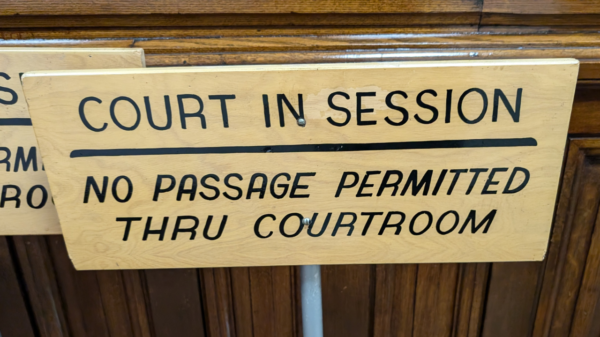
Schuylkill County government officials have until today to indicate whether they’re going to take corrective actions after being taken to the wood shed by the Equal Employment Opportunity Commission earlier this month.
The EEOC determined that Schuylkill County Courthouse officials created a hostile work environment against female employees, including subjecting them to sexual harassment, intimidation, and retaliation for speaking out against it.
On Oct. 8, we received a copy of a letter written by EEOC Deputy District Director Dana Hutter which gave the County 10 days to indicate if they’re going to take voluntarily remediation action to end these unlawful employment practices. We presume that County officials received the letter the same day and that makes Monday the 10th day. However, the letter was electronically signed on Sept. 30.
The EEOC is getting involved after a complaint filed by one of the four Jane Doe plaintiffs in the federal sexual harassment lawsuit against Schuylkill County Commissioner George Halcovge, Administrator Gary Bender, and Solicitor Glenn Roth.
The County tried to have that federal lawsuit dismissed earlier this year because the 4 female plaintiffs because they allegedly didn’t go through all the administrative steps for filing such a complaint before suing the government officials.
That move seems to have backfired on the County after the EEOC determined it is breaking employment laws with its alleged treatment of female employees at the Courthouse.
When they were pressed about the EEOC letter last week during the Public Comment portion of their meeting, Schuylkill County Commissioners refused to say whether they were planning to do anything about the EEOC letter.
Chairman Boots Hetherington said the Commissioners don’t speak on ongoing legal matters, a typical response he gives, if any, to questions about ongoing investigations involving the Courthouse.
Hutter writes in the EEOC determination letter, if the County “fails to engage in conciliation … or that conciliation has failed, the Deputy Director will inform the parties and advise them of the court-enforcement alternatives available to aggrieved persons and the Commission.”
Subscribe to Coal Region Canary
Get email updates from Coal Region Canary by becoming a subscriber today. Just enter your email address below to get started!Support Coal Region Canary
Like our reporting and want to support truly local news in Schuylkill County? Your small donations help. For as little as $5, your contribution will allow us to cover more news that directly affects you. Consider donating today by hitting the big yellow button below ...
































